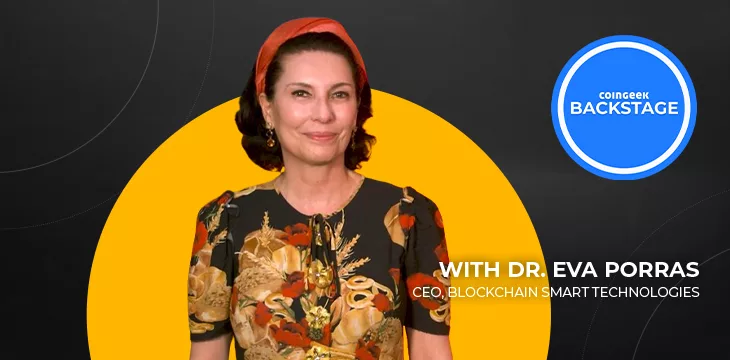|
Getting your Trinity Audio player ready...
|
Africa’s financial systems have been underdeveloped for decades, leaving a large portion of the population unbanked and financially marginalized. This is changing gradually as mobile money and other fintech solutions make their mark. Dr. Eva Porras believes integrating blockchain into this growing wave could transform Africa and provide cost-effective, convenient, fast, and secure solutions for the region.
Porras, the founder of Dubai-based DLT consultancy Blockchain Smart Technologies, was in Abuja for the Digital Nigeria International Conference. She was part of a panel that delved into how Africa can leverage blockchain in multi-industry applications alongside Shanghai Keyi Tech’s Lise Li and others.
“It’s my first time here, and I’m absolutely impressed with everything; [Abuja has] an environment of friendliness and openness,” she told CoinGeek Backstage reporter Becky Liggero.
In Africa, Nigeria is setting the pace for blockchain adoption, and the government has been the most significant factor behind the push, Porras noted. Before he left office in 2023, former President Mohammed Buhari launched the National Blockchain Policy, and the current administration is pushing forward with his vision.
For Porras, blockchain’s greatest benefit is that “you can certify that an action has happened.” In fintech, you can certify on a transparent and immutable public ledger that a payment was made. This eliminates any chance of fraud. She added that when the underlying blockchain network can scale unbounded like Bitcoin SV (BSV), you can execute millions of transactions at low fees.
Porras further clarified that blockchain is private, not anonymous. A hash on a public blockchain is a mere representation of a transaction, but the personally identifying information is kept private to protect the users. Conversely, criminals who turn to the blockchain believing it’s anonymous, realize too late that it’s not once authorities catch up with them.
During the panel at Digital Nigeria, one common area of curiosity with the audience was how blockchain can impact agriculture. The sector contributes a quarter of the country’s GDP and employs one in three Nigerians.
“One thing blockchain can impact is tracing. If you come from a region where a product has special qualities, you want to sell it at a premium price. Blockchain can help you prove the origin of this product,” Porras told CoinGeek.
Watch: AlphaDAPP revolutionizes blockchain adoption in Africa

 07-15-2025
07-15-2025 





